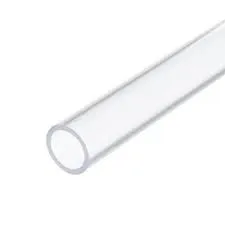Dec . 20, 2024 06:30 Back to list
hdpe black pipe
HDPE Black Pipe A Versatile Solution for Modern Infrastructure
High-Density Polyethylene (HDPE) black pipe has emerged as a critical material in various industries, particularly in water management, waste disposal, and agricultural applications. Known for its robustness, flexibility, and resistance to various environmental factors, HDPE black pipe is becoming a preferred choice over traditional materials such as PVC (polyvinyl chloride) and metal pipes.
Properties of HDPE Black Pipe
HDPE black pipe is made from high-density polyethylene, a thermoplastic polymer characterized by its high strength-to-density ratio. One of the most notable properties of HDPE is its exceptional resistance to impact, chemicals, and UV radiation. This makes it ideal for outdoor installations where exposure to sunlight and harsh weather conditions is prevalent. Furthermore, HDPE is lightweight, making it easier and less expensive to transport and install compared to traditional materials.
Another key feature of HDPE black pipe is its flexibility. It can be manufactured in a variety of sizes and can be bent to accommodate various landscape features, reducing the need for additional fittings and connections. This flexibility not only facilitates installation but also minimizes the risk of leaks at joints, leading to a more efficient and durable piping system.
Applications of HDPE Black Pipe
The versatility of HDPE black pipe allows for a wide array of applications. One of the most common uses is in water supply systems, where it is utilized for both drinking water and irrigation. The smooth interior surface of HDPE pipe reduces friction, allowing for better flow rates and lower energy costs in pumping operations.
hdpe black pipe

In the agricultural sector, HDPE black pipe is instrumental in drip irrigation systems. Its durability and resistance to corrosion ensure that it can withstand the chemicals often used in fertilizers and pesticides. Additionally, the flexible nature of HDPE allows for easy installation in uneven terrains, making it an ideal choice for extensive agricultural fields.
Another significant application of HDPE black pipe is in the construction of sewage and drainage systems. Its resistance to chemicals and clogs makes it suitable for transporting waste materials, helping to maintain hygiene and environmental standards. Moreover, the long lifespan of HDPE pipes means fewer replacements and maintenance costs over time.
Environmental Impact
An essential advantage of HDPE black pipe is its environmentally friendly profile. The material is recyclable, reducing waste and conserving resources. In addition, HDPE pipes can contribute to lower energy consumption during water transportation due to their lightweight nature and smooth surfaces.
Moreover, the use of HDPE black pipe aligns with sustainable practices as it minimizes leakage and ensures efficient resource management. Incorporating HDPE into infrastructure projects not only benefits individual enterprises but also contributes to larger environmental preservation efforts.
Conclusion
As communities around the world grapple with aging infrastructure, resource scarcity, and environmental concerns, HDPE black pipe emerges as a practical solution that meets the demands of modern engineering. Its unique properties, versatile applications, and environmental benefits make it an ideal choice for a wide range of industries. Whether it is for water supply, irrigation, or waste management, HDPE black pipe presents a forward-thinking approach to infrastructure development, paving the way for a more sustainable future. With ongoing advancements in polymer technology, the potential for HDPE black pipe continues to grow, promising even more innovative solutions to the challenges of tomorrow.
-
Durable PP Rigid Sheet: Lightweight, Chemical Resistant Solutions
NewsAug.21,2025
-
PVC Grey Sheet for Extraction: Chemical Resistant & Durable
NewsAug.19,2025
-
Durable PVC Pipe Fittings for Plumbing & Irrigation Needs
NewsAug.18,2025
-
HDPE Steel Belt Reinforced Spiral Corrugated Pipe | High Strength
NewsAug.17,2025
-
HDPE Pipe Fittings: Durable, Leak-Proof Solutions
NewsAug.16,2025
-
Premium CPVC Sheet: High-Temp & Chemical Resistant Solutions
NewsAug.15,2025

